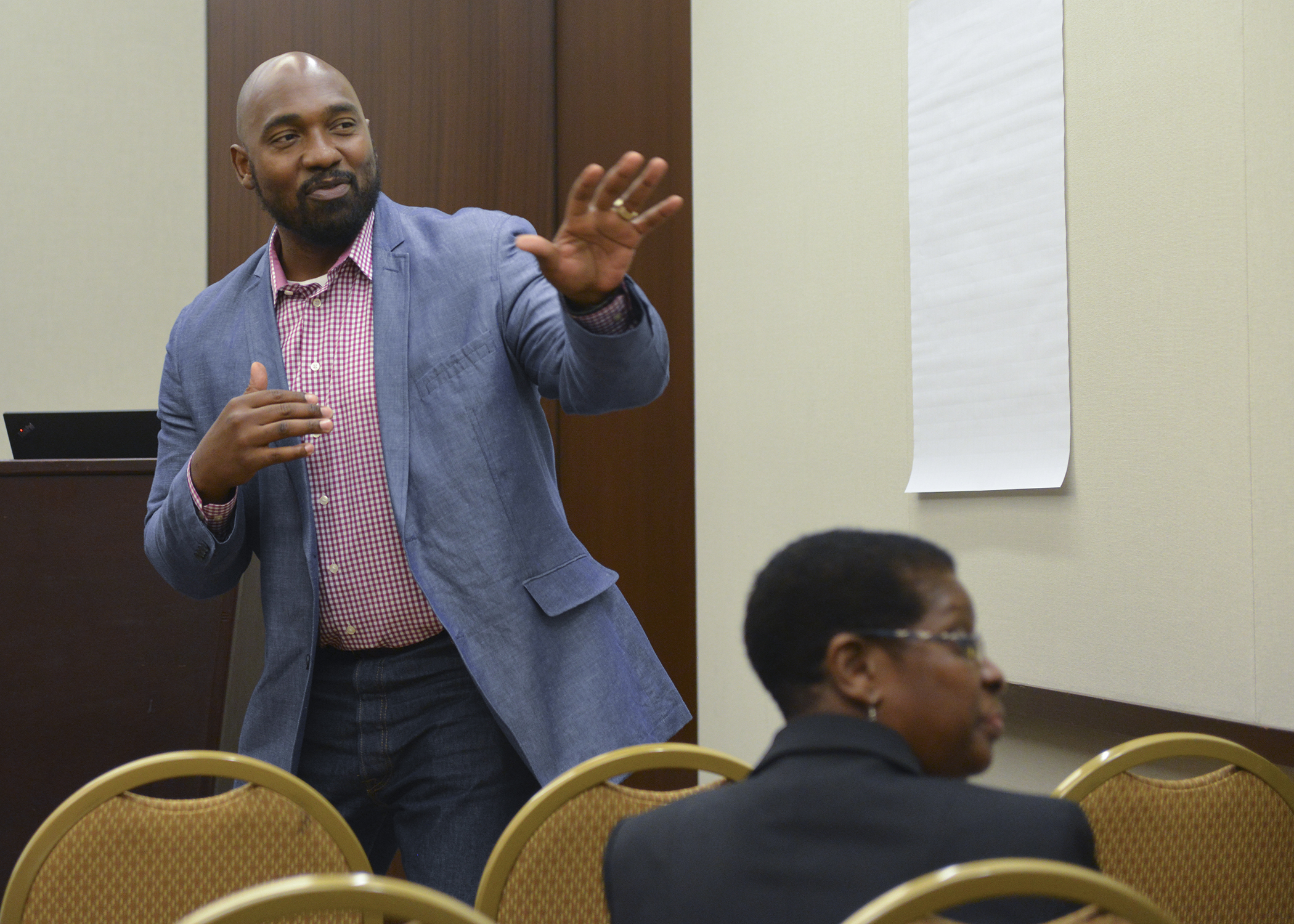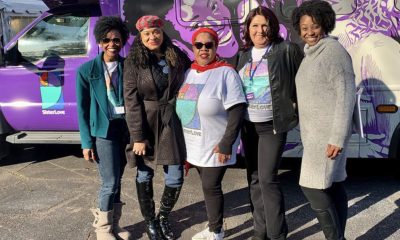Health
Straight Black Men Sidelined in AIDS Fight


Justin Wooley, a consultant with the Black AIDS Institute, speaks during a session on raising awareness about PrEP among heterosexual Black males at the Institute’s annual PrEP summit in Washington, D.C. (Freddie Allen/NNPA News Wire)
By Freddie Allen
NNPA Senior Washington Correspondent
NEWS ANALYSIS
WASHINGTON (NNPA) – Heterosexual Black men were largely invisible at the 2015 United States Conference on AIDS last week, a long-term absence that will continue to impact the future of the AIDS epidemic in the Black community.
One in 16 Black men will be diagnosed with HIV in their lifetime, compared to 1 in 102 White men who will share the same fate.
Even though heterosexual Black women continue to outpace their White and Latino counterparts in the rate of HIV infections, little attention was paid to the role that straight Black men should play in combating the epidemic in the Black community.
According to the Centers for Disease Control and Prevention (CDC), Blacks account for 44 percent of all new HIV infections in the United States.
The CDC reported that heterosexual males account for 13 percent of the new HIV infections among Blacks, while women make up 25 percent and men who have sex with men (MSM) account for 51 percent.
In 2010, the same percentages of undiagnosed HIV infections among men were attributed to male-to-male sexual contact (19 percent) and heterosexual contact (19 percent).
The CDC also reported that, “From 2000 to 2010, HIV infection was the 7th leading cause of death overall for black men, but was not a leading cause of death for other races/ethnicities.”
Health care providers struggle to bring heterosexual Black men into the health care setting, other groups protest louder and garner desperately needed resources.
Dawn Smith, a clinician and researcher at the HIV/AIDS prevention division at the Centers for Disease Control and Prevention, said that Black men who have sex with men (MSM) have a group identity that straight Black men lack.
“[Black MSM] want to get in a room together, because they have issues that they want to discuss,” said Smith. “Straight men don’t have that.”
The Black AIDS Institute, a national HIV/AIDS think tank focused on the Black community, hosted a summit on pre-exposure prophylaxis (PrEP) one day before the start of the 2015 United States Conference on AIDS that featured a breakout session designed to help health care providers introduce heterosexual Black men to PrEP.
Pre-exposure prophylaxis (PrEP) can reduce the risk of HIV infection by up to 92 percent in people who take the medicine, compared to those who don’t take PrEP at all, according to AIDS.gov.
Kier Gaines, a college and career development counselor at Kingsman Academy Public Charter School in Washington, D.C., and co-facilitator for the session on men, said that for Black men specifically, health is usually only a concern when symptoms develop, “but you can contract HIV and for all intents and purposes you can look and feel fine for months.”
Gaines said that getting straight Black men into the room to even talk about HIV prevention is a tall order.
Smith said straight Black men grapple with health care in ways that MSM and women don’t.
“A lot of men feel like being sick is being weak and so they don’t want to talk about health,” said Smith.
Gaines encounters the same resistance pushing men to get tested for HIV as he does encouraging Black men to get prostate exams.
“It’s the same thing with diabetes and it’s the same thing with hypertension, so HIV testing is no different,” said Gaines.
As a heterosexual man working as a health care advocate specializing in STD prevention and awareness, Justin Wooley, a consultant with the Black AIDS Institute, said that he constantly has to fight against the stigma associated with HIV/AIDS and the misperception that HIV is simply a disease of gay men.
“There’s almost no room for me to be an advocate,” said Wooley. “If we were talking about saving puppies with three legs in Alaska nobody would ask me, ‘Are you heterosexual or homosexual?’ It would just be about saving puppies.”
Wooley added: “I always have to validate why I care about [the epidemic] as a heterosexual Black man.”
Some AIDS activists say that the lack of focus on the HIV infection rates of straight Black men is owed to how they have been labeled in the epidemic. Heterosexual Black men diagnosed with HIV who are also intravenous drug users (IDUs) are often characterized by health care professionals as IDUs, a message that often alienates straight men who don’t inject drugs.
Yet, targeting Black IDUs is not completely unwarranted.
Black men account for 44 percent of HIV infections among intravenous drug users compared to White males who make up 23 percent of the HIV infections among men who inject drugs.
Even though new HIV infections among Black women fell 21 percent, when comparing data from 2008 and 2010, the HIV incidence rate for Black women was still 20 times the HIV incidence rate for White women.
According to the CDC, nearly 90 percent of new HIV infections among Black women are attributed to heterosexual contact.
After four days of plenaries, presentations and protests at the 2015 USCA, the absence of a vocal and targeted message for heterosexual Black men remained a blind spot in the fight against the AIDS epidemic in the Black community.
“We’re trying to pretend that all the men who are having sex with women are also having sex with men,” said Smith. “We have to break that up and we have to say that there are Black men who are only having sex with women and they need to be apart of the conversation, too.”
Smith continued: “Nothing in the epidemic has happened without people from the various groups standing up and saying, ‘What about me?’ [Straight Black men] have to stand up, and say, ‘How come you’re having a whole conference and there are no sessions about me?’”













































